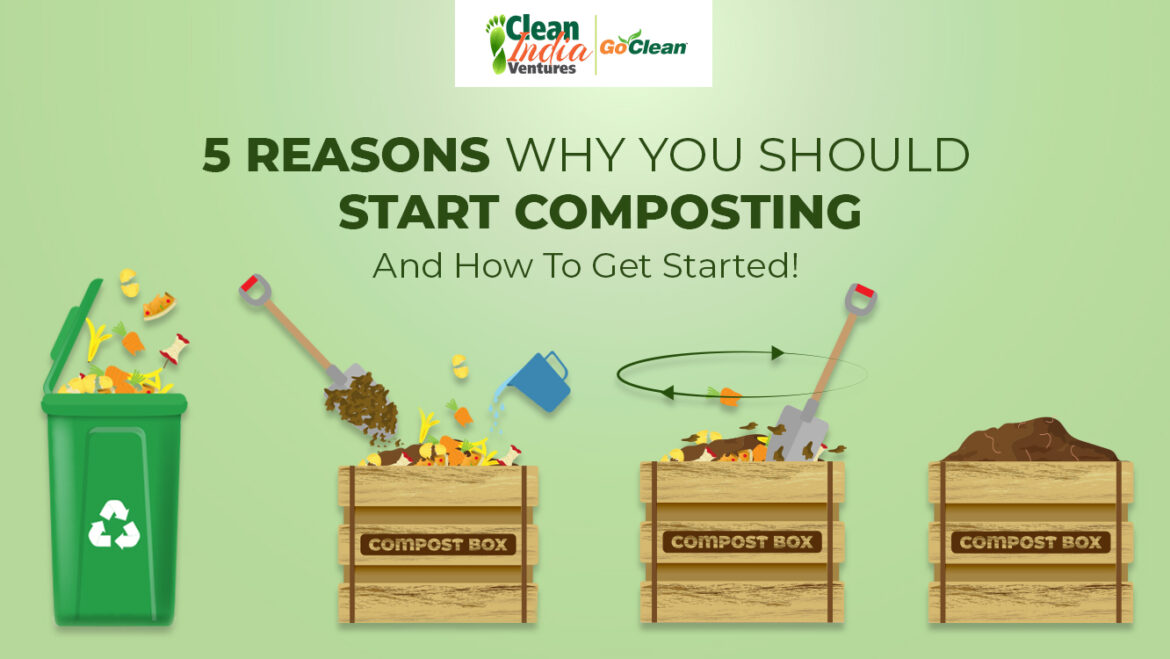Have you ever considered composting? If not, it’s time to start.
Composting is a way to recycle your food waste into nutrient-rich fertilizer for your garden and lawn. Not only is this good for the environment, but it is good for your wallet as well.
In this post, we’ll discuss the benefits of composting, how to get started, how organizations can move towards sustainability in an efficient manner, and answer some frequently asked questions about composting.
Read Also: Organic Waste Converter and how its done
Benefits of Composting
Composting is a simple way to be environmentally friendly and save money.
One of the most popular reasons for composting is for its benefits on the environment. By composting food waste, you are reducing the amount of methane gas that is created in landfills.
Reducing methane gas emissions benefits us all because less methane means less climate change.
Additionally, by using compost you can help maintain a healthy garden or lawn at home. Compost provides nutrients that plants need to grow, so it’s important to have a good mix of compost and soil when planting your flowers or vegetables.
How to Start Composting
Composting is simple, affordable and easy. You can start composting in your backyard or even in your kitchen.
Start with a small compost bin, like this one from NatureMill. It’s made of heavy-duty polypropylene plastic so it can withstand outdoor elements like extreme temperature changes and UV rays. And it also won’t emit any foul odors.
You’ll need to add the following to your compost bin:
– A balanced mix of carbon (browns) and nitrogen (greens) materials
– Water (to help with decomposition)
– Time (allow the process to take place naturally)
Once you have your compost pile going, you’ll need to keep the pile aerated and turning regularly, so that it doesn’t compact too much and water can flow through easily.
This will help ensure proper drainage and bacteria activity which is necessary for decomposition.
Read Also: Food Waste Management Solutions in India: Measures you can take
Is manual composting a feasible solution for organization & societies?
However, in today’s fast-paced life, no one really has time to look after their compost and wait for it to mature.
Think about it, if you’re an organization or society who deals with a load of organic waste on a daily basis, manual composting isn’t a feasible solution for you. Why?
- Manual composting takes time. Hence, it’d be very tough to balance your organic waste production & composting.
- It requires a lot of space. Again, the manual composting takes anywhere from 2-6 weeks. Hence, to facilitate the composting of daily organic waste, you’d require a lot of space.
- A lot of resources need to be invested. To manage composting at such a big scale, you’d require a lot of labor. This directly impacts the financials of the company.
Now, the question is — how can the organizations compost their organic waste more efficiently?
And the answer to it is very simple — Automatic composting
Start composting with GoClean organic waste reprocessor
GoClean organic waste reprocessor by Clean India Ventures is an effective tool for the
With our innovative technology, we’ve helped many organizations & societies to move towards sustainability.
Here’s how we do it!
- Superfast composting. With the GoClean organic waste reprocessor, you can compost your organic waste in just 24 hours.
- Takes limited space. It comes in a wide range of capacities between 25KG upto 1000KG.
- No resources required. GoClean organic waste reprocessor makes composting a one-click task, and that saves you on resources & money.
- Bonus. Not only does it provide you with compost, but you can get a variety of products based on the waste input.
For example, if you put in the temple waste, you get havan samagri & incense sticks.
Want to know more about our GoClean organic waste reprocessor? Visit here.
Frequently Asked Questions About Composting
Q: What kind of food can I compost?
A: You can compost any type of food. All you need to do is make sure it doesn’t contain meat, dairy, or oil. If the food does contain those ingredients, you will want to let it decompose outside before adding it to your compost pile.
Q: How often should I turn my compost pile?
A: The frequency at which you turn your compost pile varies depending on what kind of pile you have. The best thing to do is use a moisture meter to determine when to turn the pile. When the moisture level drops below 40%, then your compost is ready for turning.
Q: Can I compost meat and dairy?
A: Yes! You can compost any type of food as long as it doesn’t contain meat, dairy, or oil.
Conclusion
Composting, in today’s times, is a much-needed course of action to treat organic waste. Organizations now also have to step forward and contribute their bit towards environmental well-being.
With innovative solutions, like the GoClean organic waste reprocessor, organizations can compost their organic waste and at the same time save their time, efforts & money.

